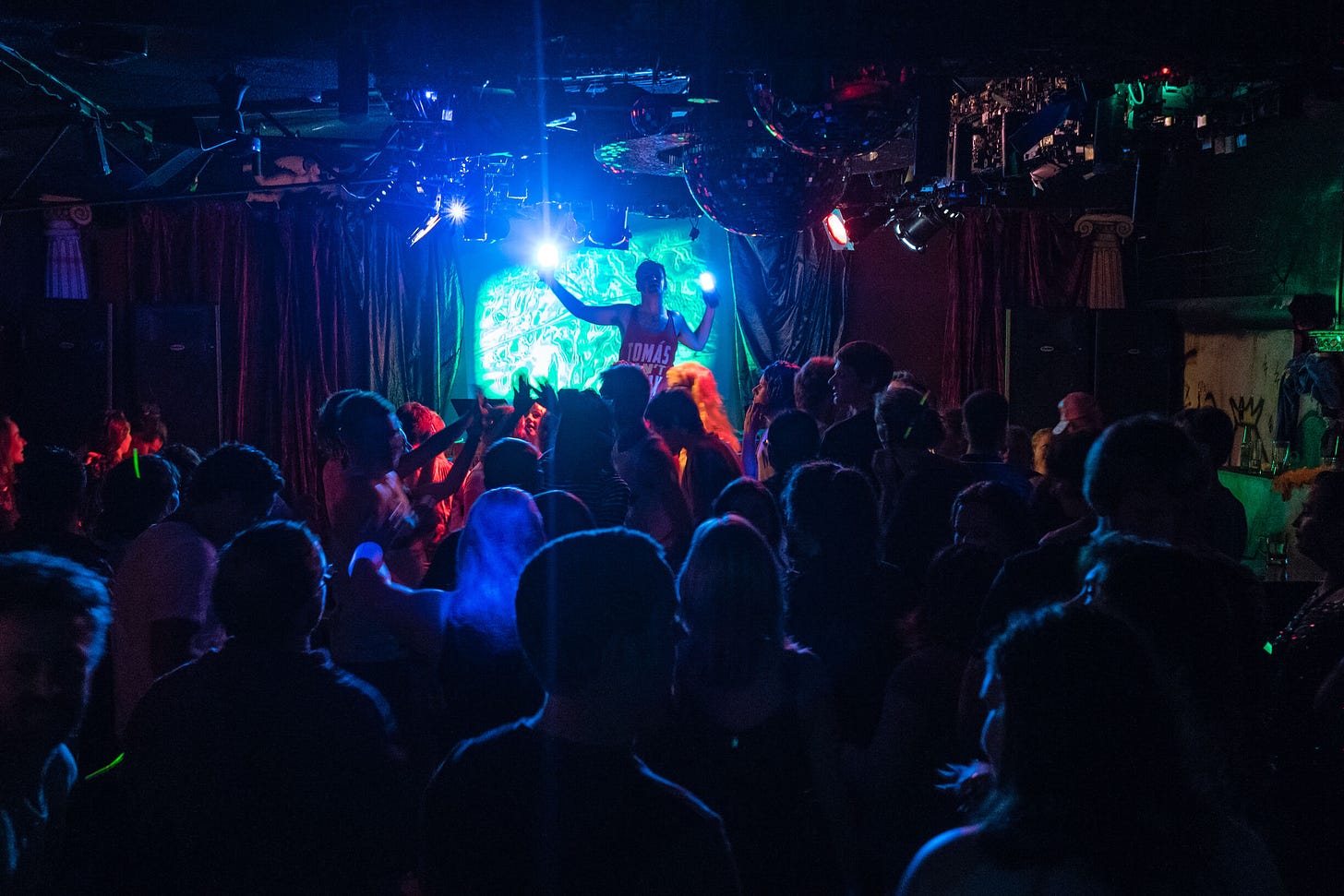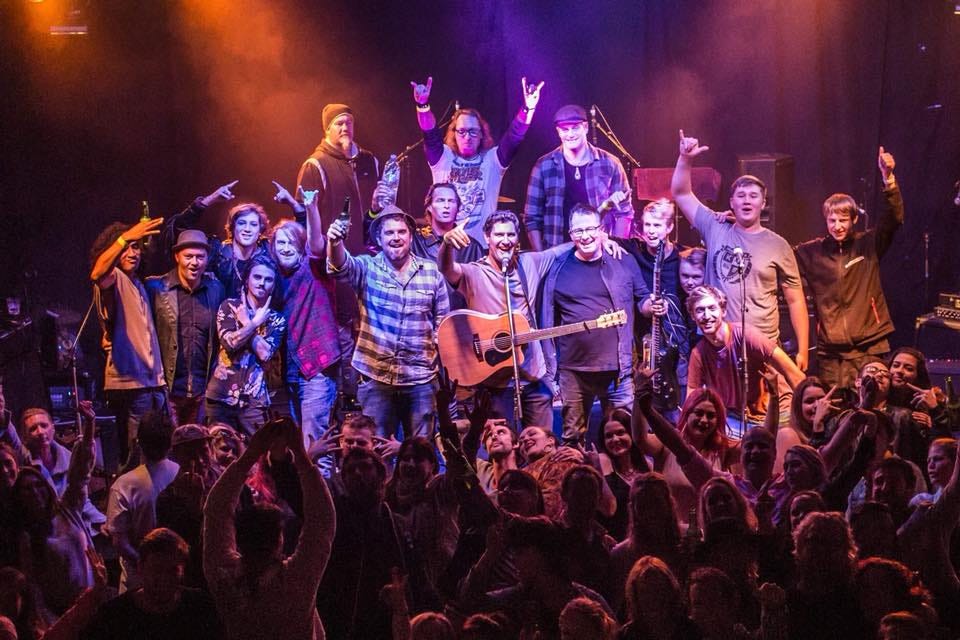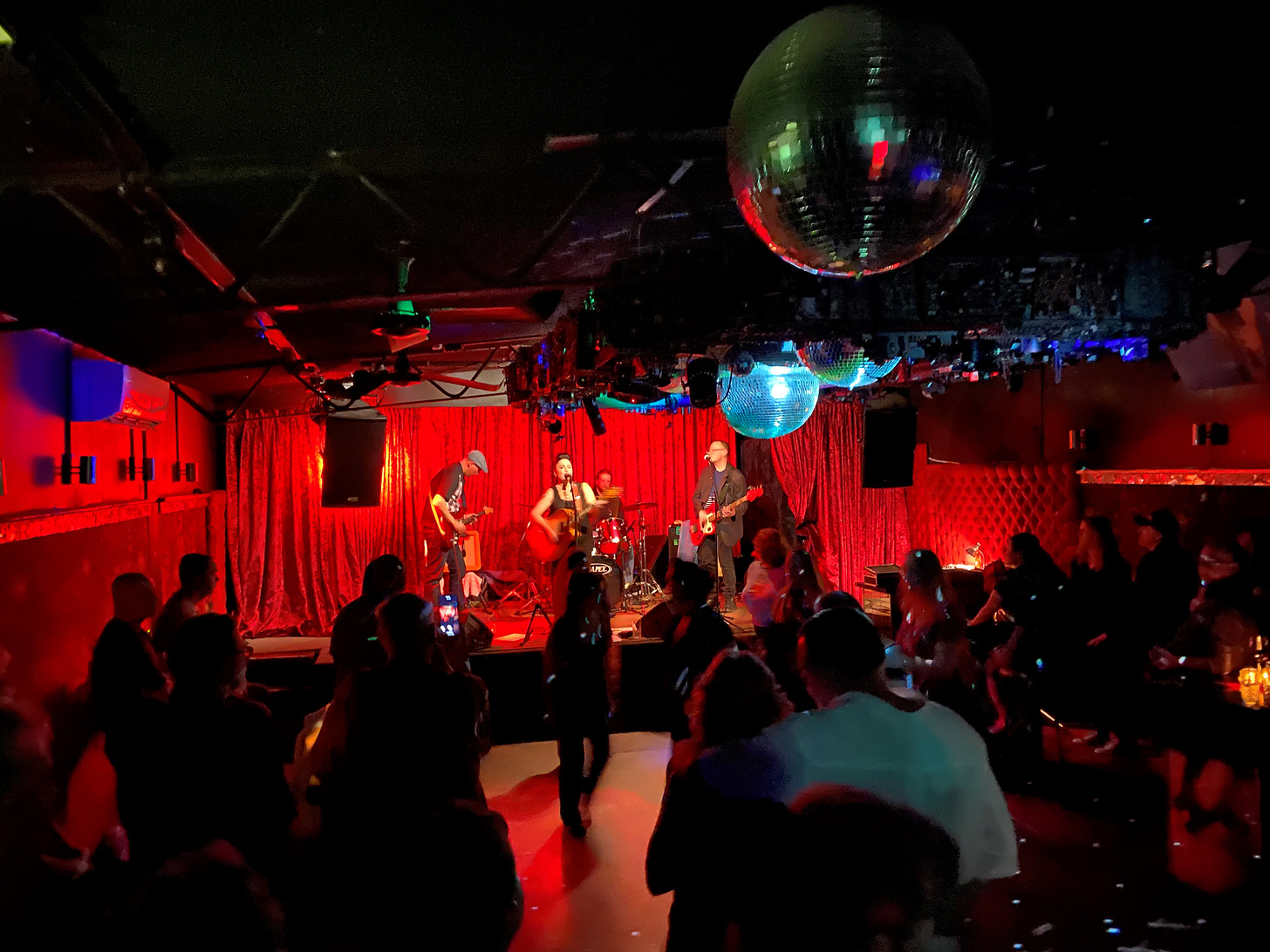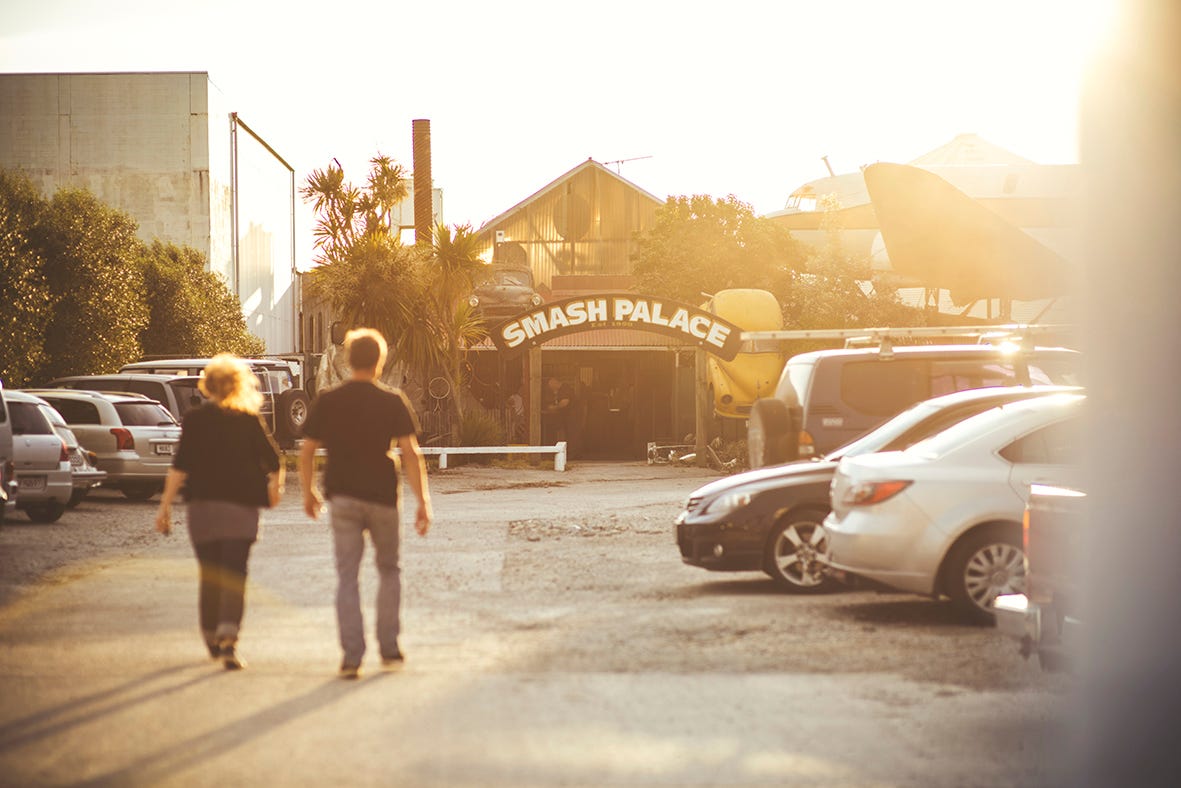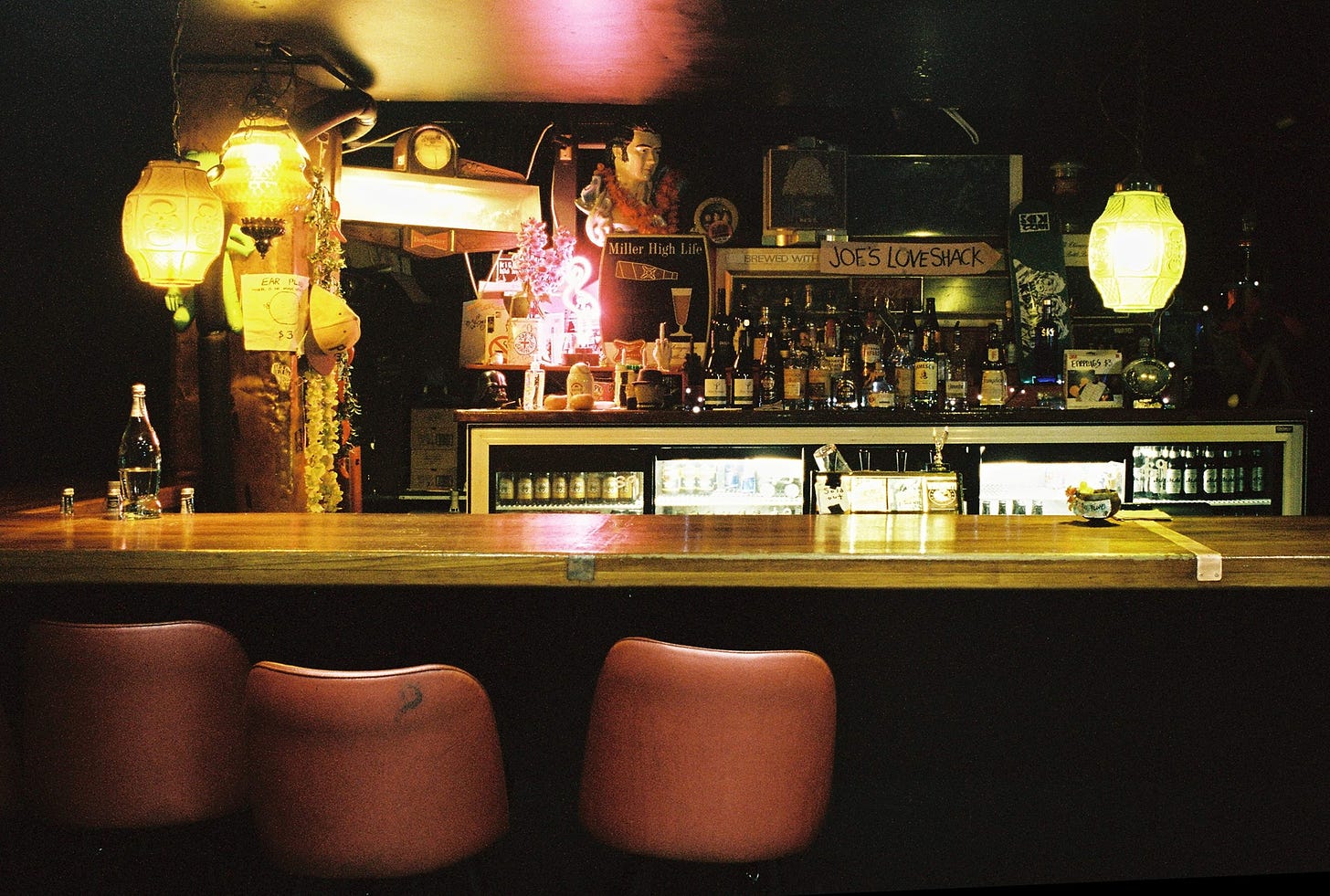When Covid hit: 'It all flew apart'
How did your favourite small music venue survive the pandemic?
As our live music industry fires back up after a year of uncertainty, I wanted to find out how small venues survived Covid-19. Many had been forced to close their doors for weeks, or months, and the toll must have been huge. How did they get by? What helped? How close did they get to shutting for good? Very close, it turns out. Let’s go…
Ross Shilling flicks through the pages of a 2020 calendar, reading through his notes like they're a script from a horror movie.
“It all flew apart ... we got locked down there ... it was quite slow there ... we came out of lockdown [but] straight after lockdown, no one's touring,” he says.
“Everyone wants to be touring, but nobody knew when we were coming out [of lockdown], so no one booked a tour."
If the director of Totara Street sounds exasperated, that's because he is.
The past 12 months have been the slowest of the five years Shilling and his co-director Jay Munro have been running the popular Mount Maunganui music venue.
Up until March, when Covid-19 lockdowns began being enforced, things had been going well.
Shilling opened Totara Street when he saw a space formerly occupied by a gym and a metalwork company and realised it resembled a small version of long-running Auckland venue The Powerstation.
“It was a tin shed, but it had the basic bones sitting there,” he says. “There was an opening – there was nowhere (for bands coming to Tauranga) to play. The stars just aligned and we jumped in.”
He and Munro fixed it up, put in a sound system and crammed 400 people in for sold out shows by L.A.B., Tiki Taane and Hollie Smith.
Since Covid-19 crowd restrictions were enforced, it's been a roller coaster.
“The first lockdown was a bit hair-raising [because] the money doesn't stop going out. We've got leases to the Eftpos company. We've got finance agreements with the point of sale company. We've got insurance, rent, you name it.”
If the first was tough, the second lockdown was worse.
“On August 14 we stopped trading again. That was another six weeks essentially,” says Shilling, still looking at his calendar.
“That one was really hard because at that point we hadn't scraped together enough money to pay the bills from the last one.”
Things got desperate. To survive, Shilling approached his landlord, and told him his situation.
“I said: ‘This is what's going to happen: I'm going to pay 50 per cent of the rent ... it's not negotiable, Brian.’
“It's that, or I'm gone ... we were going to have to close the doors.”
Who else is struggling?
Shilling's story echoes through small venues all around the country.
In Lyttleton, Wunderbar promotes itself as “the weirdest, coolest little bar and live music venue in New Zealand”.
It's been running for decades, and was recently taken over by Alex Wallace.
He was a fan, found out it was for sale, and bought it over the phone. “I hadn't seen it for 20 years,” he laughs.
The venue holds exactly 122 people and has hosted “electric” shows from local legends Aldous Harding and Marlon Williams.
When touring acts visit, Wallace makes sure they're spoiled.
“I pick musicians up from the airport. The accommodation is all free,” he says. “I want their stay to be as awesome as possible.”
But hospitality, says Wallace, is already a tough industry. “It's a week-to-week gig. There's not a lot of money. It's not like the 80s – it's not that big, lucrative industry that it used to be.”
When Covid hit, it's only luck he had “money sitting in the bank”.
“That was obviously terribly draining. I had $80,000 worth of lost revenue. I put $40,000 in to keep the bar going. That will never come out. That just goes in there.”
At Gisborne's Smash Palace, where bikes dangle from the roof, giant sea creatures lurk over the bar, and an old plane hovers over the outdoor stage, owner Darryl Monteith has cultivated a community around the venue.
“Some of our biggest nights are local Gisborne bands,” says Monteith. “They pull a massive local crowd and the place goes off all night.”
His venue's been running for 31 years, and Monteith's been in charge for the past six.
Like Wallace, he's not doing it to get rich. “No one's running a live music venue in New Zealand to make money,” he admits.
But it's something more than that. He does it to keep the local music industry thriving, and to put Gisborne on the map for touring artists.
Deep down, he also just loves a good rock 'n' roll show.
In January 2020, Monteith took the night off for Smash Palace's 30th anniversary show. He found himself up front and centre as Head Like a Hole rocked the house.
“It was like we were all in heaven,” he says. “There's no other word for it. It's bliss.”
A few months later, Smash Palace's doors were shut, along with every other venue around the country.
“Covid cut all that off at the knees,” Monteith says.
“All that momentum, all that hope and faith ... It was heartbreaking to see all that crumble away.”
As the country's small venues spluttered along in and out of lockdown, many wondered how long they had to survive.
Some, like Mount Maunganui's Totara Street, considered closing their doors for good.
How they were saved…
Then something important happened. A support network sprung into action. It not only helped the industry survive, but thrive.
Auckland's Whammy Bar led the charge when it launched a Boosted NZ campaign to help keep the famed K' Rd venue open.
Thanks to public donations, the Save Our Venues fundraising initiative reached its $10,000 goal in a single day, but the money kept pouring in.
Owner Lucy Macrae expanded the initiative, roped in others to help promote it, and opened it up to other struggling small venues.
It eventually made nearly $500,000, which was distributed between more than 30 venues.
“We reached out to all the venues who we thought would fit the criteria of being a live music venue who might need help,” says Macrae.
“The majority were like, 'Oh my god, please help'.”
The second saviour was the NZ Music Venue Infrastructure Fund, a $3 million NZ Music Commission grant providing money to be spent on upgrading venues. To date, 85 venues have accessed it.
At Smash Palace, they've improved the venue's sound and lighting.
At Totara Street, they've been able to purchase their own equipment, saving on weekly rent fees.
Talk to the owners of those venues, and they're incredibly grateful.
“The importance of that funding ... cannot be overstated,” says Monteith. “Hopefully it's going to be the first of ongoing support to help these community taonga to remain.”
Wallace agrees. “Funding has been made available. At the end of the day it's been really, really good - we've been taken care of in New Zealand.”
Macrae also accessed the fund. It allowed Whammy Bar to purchase its own PA system, and install much needed air conditioning.
To date, she doesn't know of a single venue forced to close down. But she admits it could easily have gone the other way.
“It's something that we almost have a little post-stress about,” she says.
“It was quite an intense moment ... I don't know that we would have survived it.”
With New Zealand Music Month in full swing, many music venues are booked up with local musicians who are hitting the road.
Totara Street has shows by Greg Johnson and Jordan Luck planned, Wunderbar has Estere playing soon, and Smash Palace has Theia and Vayne testing out their new sound system.
Dan Sharp, a Taupō-based singer-songwriter, is also on tour – one of his biggest yet.
He gave up the corporate world four years ago to chase his musical dreams and has just launched his new EP.
To support it, the 29-year-old is playing 20 shows around the country, with dates at Totara Street, Wunderbar and Smash Palace all booked in.
He knows how lucky he is to be able to play at venues that have only just survived Covid lockdowns.
“I just picked small, unique, cool venues with the goal of selling them out,” he says.
“If they weren't there it would be almost impossible to put a show on without (setting up in) a hall or a church.”
Ask Sharp about what it's like playing to crowds in venues with decades of history behind them, and his exuberance is obvious.
“They've established a gig culture, as opposed to a pub or a restaurant. People come to those places to have an experience. You want that culture, so people can connect with it,” he says.
“They're the infrastructure.”
This story first appeared on Stuff.co.nz.
Everything else you need to worry about this week…
Oxygen, or, as it’s called in France, Oxygene, is a dense, taut thrill-ride following a terrified woman stuck in a cryogenic chamber. Yes, the film’s creators were clearly trying to save on Covid-proofing their set by hiring just one lone actor, but this works absolutely brilliantly. Watch it, on Netflix, immediately.
Mara TK’s new album Bad Meditation is on heavy rotation at my place. Yes, he’s the younger brother of his infamous sibling Billy, but don’t let that influence you. His solo debut is a 70s-infused funk-soul odyssey that demands repeat plays. If you want to know more, you can read my Sunday Star-Times interview here.
My TV binge-list is getting so long it’s hard to keep up. Amazon Prime Video series The Underground Railroad sounds great, a perfect follow-up for anyone who watched Them recently. Netflix has the new series Halston about the American fashion designer, and I can’t wait for Neon to pick up HBO’s Hacks, about an ageing stand-up comedy titan paired with a new writer.
My son is incredibly excited about the new Twenty One Pilots album Scaled and Icy coming out on Friday, but I’m I’m more interested in hearing Off the Yak. The new album from nail-hard New York rapper Young M.A is shaping up to be quite the statement.
Here’s the trailer for Zack Snyder’s Army of the Dead, a zombie film and bank heist flick all rolled up into one ridiculous ball of popcorn. If you make it to Friday this week and want to unwind with this, I won’t judge you. Promise.
Thanks for reading all the way to the bottom! If you like getting Boiler Room newsletters in your inbox every week, find out how to support its continuation here.




